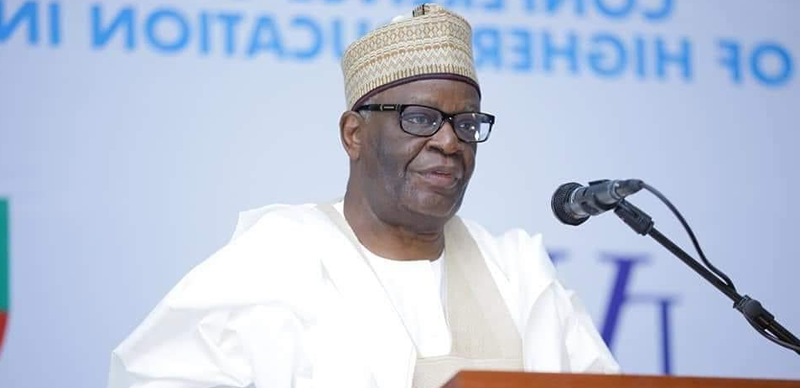Headlines
Gambari Urges FG to Adjust IMF, World Bank Policies to Avoid Breaking Point

Professor Ibrahim Gambari advises the Nigerian government to reassess IMF and World Bank policies to prevent economic challenges from escalating to a breaking point.
Prof Ibrahim Gambari, the former Chief of Staff to ex-President Muhammadu Buhari, has encouraged President Bola Tinubu’s administration to make adjustments to certain policies adopted from the World Bank and International Monetary Fund (IMF).
“What’s the point of implementing policies that lack public support?” questioned the 80-year-old diplomat during Sunday’s episode of “Inside Sources with Laolu Akande,” a socio-political program broadcast on Channels Television.
The IMF and the World Bank collaborate with us, but this is our nation. Consequently, if they propose or suggest a policy that proves ineffective for us, we should have the liberty to modify it as needed because our foremost duty—and that of the government—is to serve the people of this country.
The Bretton Woods institutions have consistently pushed for the elimination of energy subsidies and the move to a floating naira, arguing that not implementing these economic policies has subjected Nigeria to significant inflationary pressures.
Following his inauguration in May 2023, Tinubu, the former governor of Lagos, eliminated the petrol subsidy and allowed the naira to float. As a result, petrol prices skyrocketed from under N200 per liter to over N1,100 in numerous regions across the country. Simultaneously, the naira experienced a significant drop in value, plummeting from approximately N700/$ to as low as N1,600/$.
Food and commodity prices have soared as Nigerians face what could be considered the most severe cost of living crisis since the country’s independence more than sixty years ago.
READ ALSO: Jega Warns Tinubu Against Adopting IMF and World Bank Policies Uncriticall
Professor Gambari mentioned that Nigeria has been fortunate, as in other regions of Africa, a cost of living crisis would likely have incited riots.
“We’ve been quite fortunate because Nigerians typically don’t ask for too much. This allows them to continue with their daily activities without creating pressure.”
“There are countries such as Sudan, where a 20% increase in bread prices led to riots and the overthrow of a governor. In Nigeria, people tend to adapt; however, there could be a breaking point. We should take action before it escalates into a revolution,” he stated.
The diplomat urged the current administration to swiftly adapt and amend certain Bretton Woods policies it has implemented, in order to benefit Nigerians.
He mentioned that after spending 13 years working at the United Nations and representing his country there for a decade, he believes it’s crucial for each nation’s leadership to take charge of their own destiny.
Certainly! Here’s a rewritten version of the statement: “Indeed, we belong to the international community and are members of both the IMF and World Bank as participants in the global system. However, it’s crucial that we tailor their recommendations to suit our specific needs. Our foremost obligation is to Nigeria’s interests. We cannot be held accountable for any actions taken by the IMF.”
“Absolutely, we value them as development partners. However, this is our nation—our sole homeland, Nigeria. It’s the only country that belongs to us and it’s imperative that we work together to restore it.”
“Every Nigerian president must prioritize security, as development is impossible without peace. A crucial role for any president is to ensure the country’s safety and establish a framework that unleashes the potential of its citizens, empowering them to thrive economically,” he added.
